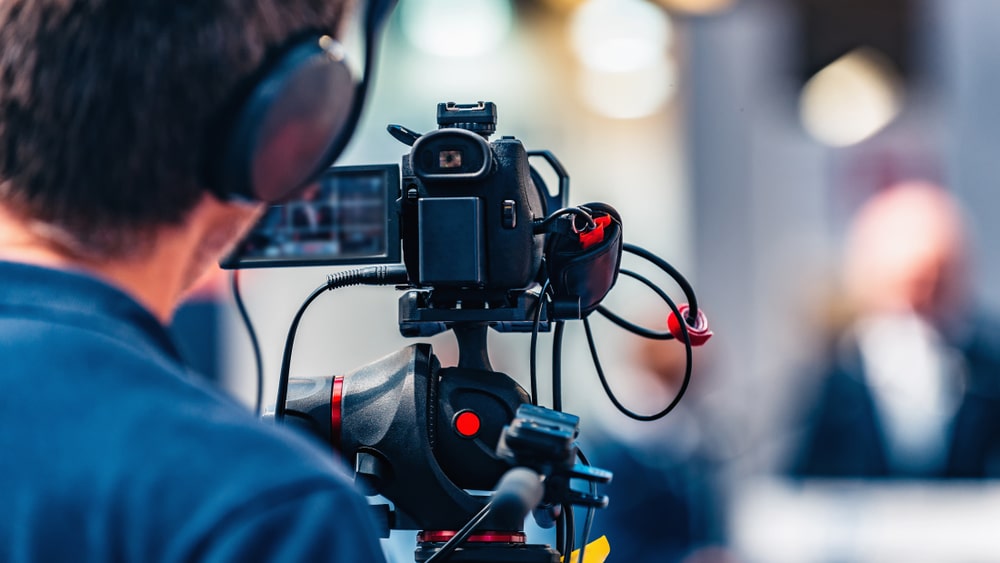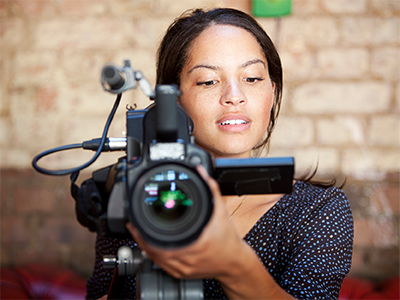Precision-Based Legal Videography for Professional Evidence Filming.
Precision-Based Legal Videography for Professional Evidence Filming.
Blog Article
The Role of Legal Videography in Depositions and Trials
Legal videography has arised as an essential device in both depositions and trials, offering a diverse approach to recording witness testimonies. As lawful experts increasingly identify its worth, it triggers a much deeper evaluation of exactly how these visual records can affect juror assumptions and test end results.

Relevance of Legal Videography
Lawful videography plays an essential function in the documentation and discussion of depositions and tests. This specific field incorporates technological abilities with legal knowledge to create a trusted record of procedures that can significantly affect case end results. The appearance of lawful videography enhances the understanding of witness testimony, permitting jurors and courts to observe not only the spoken words yet also the demeanor, emotions, and body language of the witnesses.
On top of that, lawful videography provides an unbiased account of occasions, reducing the capacity for misinterpretation that can accompany created transcripts alone. This visual documents serves as an important device during trial presentations, assisting in a more clear and even more persuasive narrative for both plaintiffs and defendants. The ability to replay video sectors during court process makes it possible for lawful groups to stress essential points, reinforcing their debates effectively.
The significance of lawful videography expands beyond the court; it likewise plays an essential function in protecting evidence for future reference, whether for appeals or additional lawsuit. Its combination into the legal process is essential for making sure a reasonable and exact depiction of the facts, ultimately adding to the pursuit of justice.

Refine of Legal Videography
While capturing the nuances of depositions and tests, the process of legal videography entails numerous important steps that ensure top notch, exact recordings. A professional lawful videographer prepares by reviewing the situation products and comprehending the certain needs of the deposition or test. This preparation includes acquainting themselves with the individuals and the context, which aids in recording essential information.
On the day of the recording, the videographer sets up the necessary equipment, which typically consists of high-definition electronic cameras, microphones, and appropriate lighting. Making sure ideal angles and sound quality is vital, as it straight impacts the performance of the recording. The videographer interacts with attorneys and individuals to develop procedures, making sure that everyone recognizes the recording procedure.
During the deposition or test, the videographer carefully records the proceedings, paying close focus to both verbal and non-verbal hints. This includes capturing the disposition and reactions of witnesses and attorneys. After the session concludes, the videographer may edit the footage for clarity and compliance with lawful requirements, producing an end product that properly reflects the process for future reference and usage in lawful contexts.
Advantages in Depositions
The incorporation of videography in depositions uses numerous benefits that improve the general procedure of collecting evidence. One main benefit is the capacity to capture witness testimonies with visual and auditory fidelity, supplying an extra accurate representation of the witness's attitude, tone, and body movement. This multidimensional technique permits lawyers and juries to assess integrity better than typical written transcripts alone.
Furthermore, videographed depositions work as a powerful device for preserving testimony. Should a witness come to be unavailable for trial, their tape-recorded deposition can be played in court, making sure that their evidence continues to be available and pertinent. This aspect substantially minimizes the risk of shedding critical information that can affect case end results.

Last but not least, videography boosts the overall expertise of the deposition process, instilling self-confidence in customers relating to the thoroughness of their legal representation (legal videography). By leveraging technology, lawyers can considerably enhance the effectiveness of depositions
Impact on Tests
In numerous trials, the assimilation of videography can substantially affect the discussion of evidence and the court's assumption. Lawful videography captures witness testaments and critical evidence in a dynamic style, enabling jurors to involve with the material on several degrees. This visual part improves the storytelling element of a trial, giving context and psychological resonance that typical text-based evidence may do not have.
Additionally, video recordings can act as effective tools for impeachment throughout interrogation. When inconsistencies arise in between a witness's prior statements and their court testament, video clip proof gives an objective reference that can persuade jurors' viewpoints. This immediacy and clarity can strengthen the reliability of an event's story while at the same time undermining opposing disagreements.

Future Trends in Legal Videography
As we look toward the future of lawful videography, a number of arising patterns guarantee to reshape its role within the courtroom. One significant trend is the integration of expert system (AI) in video clip analysis and editing. AI can improve the procedure of determining essential minutes in videotaped depositions, enabling lawyers to rapidly access pertinent material, thus enhancing performance in situation preparation.
Additionally, the increase of virtual fact (VIRTUAL REALITY) and enhanced truth (AR) modern technologies is expected to change exactly how jurors experience evidence. legal videography. By submersing jurors in a useful site simulated environment, these innovations can offer an extra extensive understanding of intricate circumstances, leading to more informed deliberations
Additionally, the raising demand for remote depositions, accelerated by the COVID-19 pandemic, will likely continue. Legal videographers will require to adapt to brand-new software program and systems to guarantee high-grade recordings in online settings.
Lastly, the expanding focus on information security will demand more stringent methods for saving and sharing video clip evidence. As the legal landscape evolves, lawful videographers must remain abreast of these trends to keep their importance and performance in the judicial process.
Final Thought
In summary, lawful videography offers an essential feature in the judicial procedure, improving the stability of depositions and tests. As modern technology proceeds to progress, legal videography is poised to additional transform its function within the legal landscape.
Report this page